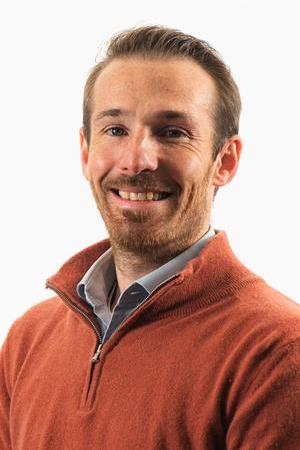Healx - Hunting new drugs with AI
Ahead of the Rare Disease Day on 28 February, Healx CEO Tim Guilliams spoke with Rory Cellan-Jones about why traditional drug discovery is broken and how we're using Artificial Intelligence to find new treatments for rare diseases at scale. Check out the interview below (originally published on Rory's Always On Newsletter on LinkedIn)
In 2014 two young Cambridge scientists got together with the pharmaceutical industry veteran who invented Viagra and decided to start a company. It was called Healx and its mission was to use machine learning to hunt for new drugs to treat rare diseases.
I’ve been speaking to one of those young scientists, the Healx CEO Belgian-born Tim Guilliams, to find out how that quest is going. He explains that he and his co-founders were inspired by meeting a Cambridge man Nick Sireau, the father of two children with a rare condition, AKU or black bone disease.
“He was basically told by the medical professionals that there are no treatments available, that he should enjoy the next few years with his kids,” Guilliams explains. “Nick went on a mission to try and find a treatment for his kids, and went about it in a really, really clever way. So he tried to find an existing treatment that could be used in a different way for black bone disease - and that’s been incredibly successful.” (For more about Nick Sireau’s story read this great article in Nature)
From that meeting they took several conclusions. First, that there were a lot of rare diseases, 7,000 of them with no approved treatment, affecting 400 million people worldwide, half of them children. Second, that the best route to finding treatments was using combinations of existing drugs. That meant searching through huge amounts of data so a new automated approach was needed:

“We just realised how machine learning could really help do this and help those patients in need, in a different way at a different scale.”
But Tim Guilliams and his colleague Andreas Bender would not have got their business off the ground without Dr David Brown, a 40 year veteran of the pharmaceutical industry who had worked for many of the industry’s giants and was one of the names on the patent for Viagra. They told him that they wanted to move away from the existing paradigm of the drug industry which Guilliams describes as “target-based” - you choose one element of the disease and target it with one drug:
“If you start with the wrong target, you basically are bound to fail in the clinic. And 95% of the clinical programmes actually fail at the moment so the industry is broken, and really in trouble.”
Dr Brown liked what they told him about using machine learning to start with a far more broad brush approach, and his reputation helped them get funding. Their first step was to chew through data about all of those 7,000 rare diseases and rank them in terms of how easy it would be to find a cure.
Then they tried to work out which combination of drugs might work against a disease: “If you look at combinations of two or three existing drugs, you have more than 10 billion possibilities per disease. And so you can basically not do this without machine learning.”
So, eight years in, how are things going? Has the machine learning technique done the trick? Guilliams rattles off facts and figures.
Healx doubled in size last year to 115 people, they’ve raised $70 million so far and are in discussions to raise significantly more, they have launched 21 disease programmes of which the most promising will start a phase 2 clinical trial later this year - a great milestone, he says: “It’s an AI predicted treatment for a rare neurological disease called Fragile X syndrome.”
Healx is still some years away from having a commercial drug and I’m always impressed by the patience of investors in this industry - $70 million is a lot to pour into a venture that has yet to prove it has a viable product.
“Drug discovery, particularly in the traditional way, takes a very long time - 10 to 15 years,” Guilliams explains. “And for us, the first phase of the company, the first five years, are really about building the technology platform, showing that it works in the preclinical phase.”
But he seems confident that AI techniques which have been endlessly hyped over the last decade are now proving their worth: “People can now predict treatments, validate them, translate them into the clinic two or three times faster, at one fifth of the cost.”
It is in getting to the clinical trial stage that the machine learning technique can accelerate the process of drug discovery - from then on it appears to be just as lengthy.
It is great to see another Cambridge startup prospering in what is an increasingly crowded field. But Healx and other AI pharma businesses still have to come up with a blockbuster drug to show that they really have transformed the way this industry works.
***
Photo: Dr Tim Guilliams, CEO, Healx
(Listen to the conversation with Tim Guilliams here)
.png)
.png)